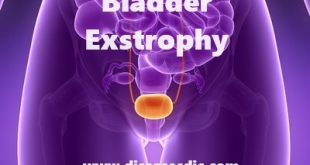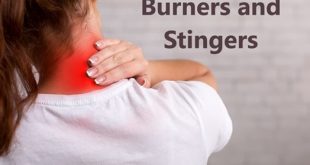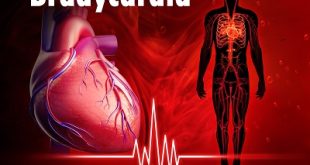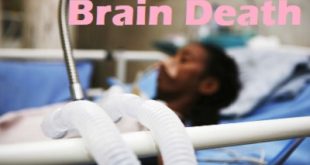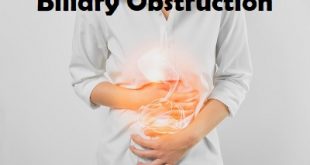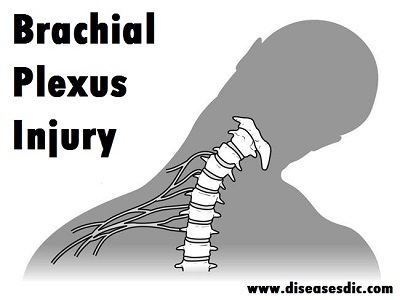Definition
Bruxism refers to an oral parafunctional activity that occurs in most humans at some point in their lives. Grinding of the teeth and clenching of the jaw are the two main characteristics of this condition, which can occur during the day or at night. Bruxism is one of the most common known sleep disorders and causes most of its damage during sleeping hours. The clenching and grinding which accompanies bruxism is symptomatic of a malfunctioning chewing reflex, which is turned off in non-sufferers when sleeping. For sufferers, deep sleep or even naps cause the reflex nerve control center in the brain to turn off and the reflex pathways to become active.
Typically, the incisors and canines (front 6 upper and lower teeth) of opposing arches grind against each other laterally. This side to side action puts undue strain on the medial pterygoid muscles and the temporomandibular joints. Earache, depression, headaches, eating disorders, and anxiety are among the most common symptoms of bruxism; these symptoms also accompany health issues such as chronic stress, Alzheimer’s disease, and alcohol abuse.
It is frequently misdiagnosed or not diagnosed at all, because it is only one of several potential causes of tooth wear. Only a trained professional can tell the difference between bruxing wear and wear caused by overly aggressive brushing, acidic soft drinks, and abrasive foods. A BiteStrip® is an economical device used to diagnose bruxism at home. The device itself is a small electromyography which senses and monitors any activity in the jaw muscles during sleep. The frequency and severity of the condition can then be assessed and the best treatment plan can be formulated.
Types of Bruxism
There are two types of bruxism, and their symptoms and causes can differ:
Awake or Diurnal Bruxism
Awake Bruxism occurs (AB) during daytime and it is a semi voluntary ‘clenching’ activity. It is also known as Diurnal Bruxism (DB). It consists of clenching and grinding as well as other oral habits such as cheek and tongue biting, finger and thumb sucking, and many occupational habits such as biting on pins or pencils etc. performed throughout the day.
It is predominant in females and is usually associated with a stressful lifestyle. This disorder is more common in younger population.
Sleep Bruxism or Nocturnal Bruxism
Grinding teeth while sleeping either during daytime or during night is termed as ‘Sleep Bruxism’ (SB). It is also known as Nocturnal Bruxism. SB is an oro-mandibular behavior and it consists entirely of clenching and/ or grinding of teeth, and often occurs in association with certain stages of sleep. It was recently grouped as sleep related movement disorder according to recent classification of sleep disorders.
Risk factors
These factors increase your risk of bruxism:
Stress: Increased anxiety or stress can lead to teeth grinding. So can anger and frustration.
Age: It is common in young children, but it usually goes away by adulthood.
Personality type: Having a personality type that’s aggressive, competitive or hyperactive can increase your risk of bruxism.
Medications and other substances: Bruxism may be an uncommon side effect of some psychiatric medications, such as certain antidepressants. Smoking tobacco, drinking caffeinated beverages or alcohol, or using recreational drugs may increase the risk of bruxism.
Family members with bruxism: Sleep bruxism tends to occur in families. If you have bruxism, other members of your family also may have bruxism or a history of it.
Other disorders: Bruxism can be associated with some mental health and medical disorders, such as Parkinson’s disease, dementia, gastroesophageal reflux disorder (GERD), epilepsy, night terrors, sleep-related disorders such as sleep apnea, and attention-deficit/hyperactivity disorder (ADHD).
Bruxism causes
The exact cause of teeth grinding is not totally understood and there are numerous different theories. However, there is a link to breathing airway issues, such as
- Sleep apnea,
- Jaw posture positions
- Tooth position
- Dental work that has changed jaw position or tooth positions
- Abnormal bite
- Trauma
- Repetitive strain
- Lifestyle activities, as well as emotional and developmental issues.
Symptoms of Bruxism
Many patients are unaware that they clench or grind particularly if they have sleep bruxism. The following symptoms may be indicative of bruxism.
- Sleep partner’s complaint of tooth grinding.
- Waking with teeth clenched.
- Indentations in the inside of the cheeks or the edges of the tongue.
- Waking with tenderness and restriction in the muscles of mastication.
- Hypertrophy of the masseter muscles.
- Waking with tooth or gum sensitivity.
- Excessive dental wear, including loosening or fracturing of the teeth.
- TMJ clicking or locking, TMJ pain, headache.
- Snoring can be an indicator of sleep bruxism.
Complications
In most cases, it doesn’t cause serious complications. But severe bruxism may lead to:
- Damage to your teeth, restorations, crowns or jaw
- Tension-type headaches
- Severe facial or jaw pain
- Disorders that occur in the temporomandibular joints (TMJs), located just in front of your ears, which may sound like clicking when you open and close your mouth
Diagnosis and test
During regular dental exams, your dentist likely will check for signs of bruxism.
Evaluation
If you have any signs, your dentist looks for changes in your teeth and mouth over the next several visits to see if the process is progressive and to determine whether you need treatment.
Determining the cause
If your dentist suspects that you have bruxism, he or she tries to determine its cause by asking questions about your general dental health, medications, daily routines and sleep habits.
- To evaluate the extent of bruxism, your dentist may check for:
- Tenderness in your jaw muscles
- Obvious dental abnormalities, such as broken or missing teeth
- Other damage to your teeth, the underlying bone and the inside of your cheeks, usually with the help of X-rays
A dental exam may detect other disorders that can cause similar jaw or ear pain, such as temporomandibular joint (TMJ) disorders, other dental problems or health conditions.
Treatment and medications
Treatment will depend on your symptoms, age, and general health. It will also depend on how severe the condition is.
In most cases, it can be successfully treated. Treatment may include:
Behavior changes: You may be taught how to rest your tongue, teeth, and lips correctly. You may also learn how to rest the tongue upward to ease mild pain on the jaw while keeping the teeth apart and lips closed.
Mouth guard: You may be fitted for a plastic mouth guard that you can wear at night to absorb the force of biting. It can be worn during the day if you grind your teeth while awake. This mouth guard may help prevent future damage to the teeth and help in changing behavior.
Biofeedback: Biofeedback uses an electronic tool that measures the amount of muscle activity in the mouth and jaw. It then signals you when there is too much muscle activity so you can take steps to change that behavior. This is especially helpful for daytime bruxism. More research is needed to create a treatment program for those who clench during the night.
Medicine: Some medicines may be helpful in controlling the neurotransmitters. Changing medicines may be needed if antidepressant medicines are found to be the cause of bruxism.
Botulinum toxin shots (injections): This may be offered to some people with severe bruxism who don’t respond to other treatments.
Prevention of Bruxism
In many children, bruxism is their natural reaction to growth and development. These cases can’t be prevented. But stress-related teeth grinding in children and adults can be avoided. Setting a calming bedtime routine is the first step you can take to avoid teeth grinding. Help your child relax at night:
- Limit television and electronics several hours before bed.
- Provide calm music for them to listen to.
- Give them a warm shower or bath.
- Allow them to read or listen while you read.
Reducing stress is important. Talk with your child regularly about his or her feelings. Help them deal with stress. If you are suffering from bruxism, take steps to reduce stress in your life. Talk to a friend, family member, or counselor about what is causing you stress. Try to eliminate stressors if you can.
 Diseases Treatments Dictionary This is complete solution to read all diseases treatments Which covers Prevention, Causes, Symptoms, Medical Terms, Drugs, Prescription, Natural Remedies with cures and Treatments. Most of the common diseases were listed in names, split with categories.
Diseases Treatments Dictionary This is complete solution to read all diseases treatments Which covers Prevention, Causes, Symptoms, Medical Terms, Drugs, Prescription, Natural Remedies with cures and Treatments. Most of the common diseases were listed in names, split with categories.
